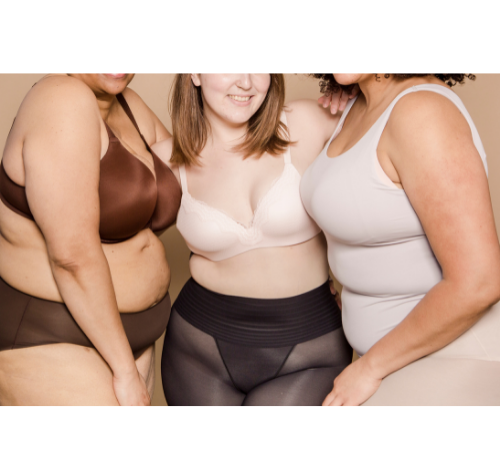Since its emergence in the 2010s, the body positivity movement has swept the world leading to a host of new hashtags, ad campaigns, and slogans pushing the same message: all bodies are beautiful.
In the midst of a society that celebrates skinny and flawless bodies, pedals weight loss programs and diet pills, and allows people to be shamed for their bodies, the body positivity movement is often seen as a refreshing way to combat unhealthy and unrealistic body standards.
However, despite the positive intentions of this movement, it is not without its flaws.
Poor physical health: When people are told to celebrate their body no matter what, it can lead to negative physical health outcomes. People of all shapes and sizes may feel like they do not need to worry about proper nutrition or exercise without realizing that these factors are key to good physical health, not just physical appearance.
Body obsession: The body positive movement puts physical appearance at the forefront of the mind. Instead of commercials or posts that recognize a person’s desirable character traits or accomplishments, media associated with this movement focus solely on celebrating how a body looks. In this way, self-worth and self-love are often connected to appearance.
Although the heart of this movement is in the right place, blindly embracing the body positivity movement can be harmful for teens.
Teens who struggle with eating disorders, body dysmorphia, or body image issues need to be able to focus on who they are outside of the way they look, and all teenagers need to make sure they are maintaining their physical health regardless of their appearance.
For this reason, instead of focusing on body positivity, teens should focus on body neutrality.
Unlike body positivity, which centers around celebrating the body for how it looks, body neutrality celebrates the body for what it does.
Think about all of the amazing things your body does for you every day.
Bodies allow people to walk, run, and jump. Bodies give birth and create life. Bodies allow teens to play sports and participate in extracurricular activities. They do so much.
When your teen learns to recognize the ways that the body helps them each day, and they become more aware of the value their body has to offer, they will take better care of their bodies.
When teens respect their bodies, they will try their best to make sure they give their bodies the proper nutrition, exercise, and rest it needs to continue to perform well.
Although it is great for your teen to appreciate their body regardless of what it looks like, emphasizing body neutrality can be more successful than body positivity at creating body acceptance and building self-esteem.
Here are a few ways for you to encourage your teen to practice body neutrality:
Create a gratitude journal
Have your teen keep a gratitude journal where they write at least one reason why they are grateful for their body each day.
Simple statements like: I’m grateful that my body helps me play my favorite sport, or I’m grateful that my body allows me to play hide and seek with my younger cousins will help teens become more mindful of the ways their bodies make a difference each day.
Prioritize health over appearance
When your teen is always wondering whether or not they could stand to gain or lose a few pounds, it can cause them to engage in unhealthy behaviors like crash diets, obsessive exercise, and binge eating.
Instead of making comments about your teen’s appearance or saying things that will get them to think about how they look, focus on their health.
Are they getting daily exercise? Are they eating a balanced diet? Are they getting 7-9 hours of sleep each night? Let these factors be your main concerns instead of your teen’s physical appearance.
Celebrate your teen’s individuality
Make sure when you give your teen praise or compliments that these words are centered around their personality and individuality rather than their body and their looks.
Let them know that you appreciate the hard work they put in math class. Tell them that you value their creativity and ability to draw. Share that you love the way they interact with their younger siblings.
When your teen is able to see that they have value outside of their looks, it will do wonders for boosting their self-esteem. This will also allow them to have a healthy relationship with their body because they will know that their body is not the only part of them that garners positive attention.
